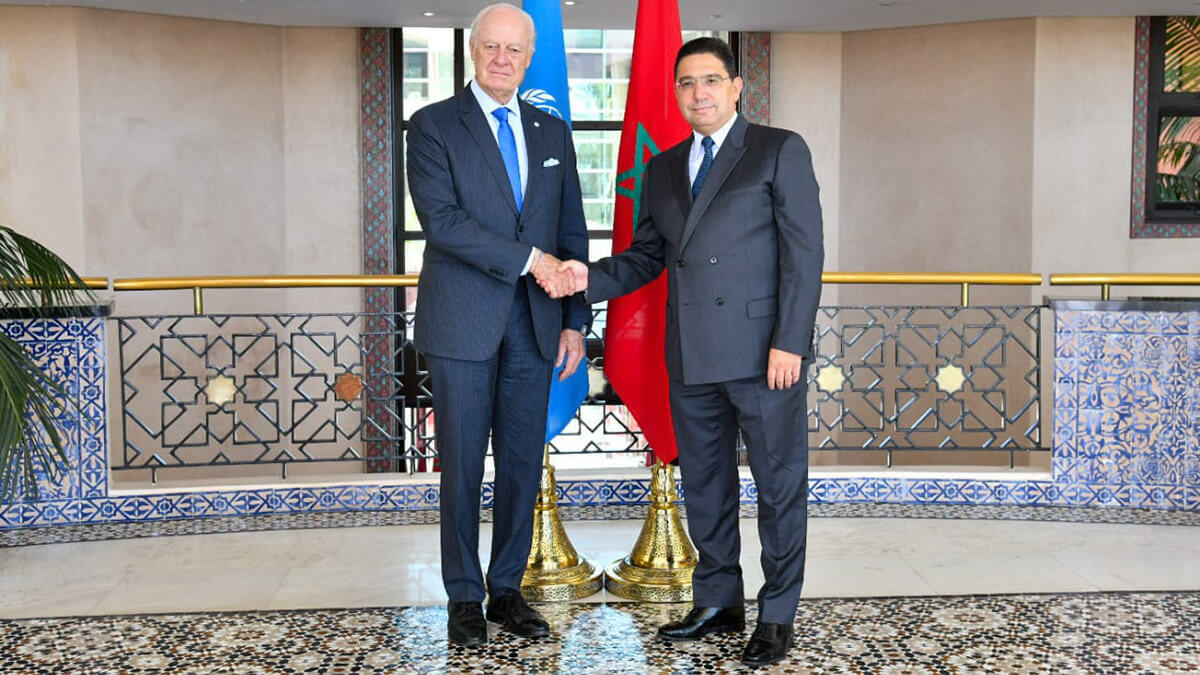Sahara: De Mistura Calls for a New Political Process Based on Moroccan Autonomy

On the eve of the 50th anniversary of the Green March, the UN Secretary-General’s Personal Envoy for the Sahara, Staffan de Mistura, broke his usual diplomatic silence to comment on the recent UN Security Council Resolution 2797, which reaffirms that the Moroccan Autonomy Plan is the most realistic starting point for reviving the political process. In a public statement on November 6, 2025, De Mistura emphasized that upcoming negotiations will take place “on the basis of the updated Moroccan proposal” announced by His Majesty King Mohammed VI, while inviting all parties to engage “in good faith” in a new phase of dialogue.
The Italian-Swedish diplomat struck a balanced tone, avoiding direct references to Algeria and the Polisario Front, instead referring to them as “the parties.” This wording leaves the door open for these actors to join as “active participants” in the talks, without feeling compelled to accept pre-set outcomes. However, De Mistura made it clear that the starting point will be the Moroccan autonomy proposal, recognized by the international community as the only “serious, credible, and realistic” basis for resolving a conflict that has lasted for half a century.
De Mistura explained that he had reached the conviction that it was “time to make some observations” after fully assimilating the latest Security Council resolution, which he described as a sign of “renewed international vitality.” He highlighted the active role of the U.S. administration, backed by France and the United Kingdom, in building consensus around Resolution 2797. This new dynamic, he said, marks a decisive shift in the Council’s approach toward a pragmatic and lasting solution.
In a particularly striking metaphor, De Mistura likened the United Nations to “a vessel of legitimacy that needs strong and steady winds to reach its port,” stressing the need for genuine engagement from both permanent and non-permanent Council members. He cited the involvement of U.S. presidential adviser Massad Boulos and ambassador Michael Waltz, along with the contributions of France and the UK. He also praised the stance of Russia and China, whose decision not to use their veto power allowed the resolution to pass smoothly.
In an effort to bring Algeria and the Polisario back into the political process, De Mistura stressed that Resolution 2797 provides “a framework for negotiation” but “does not impose predetermined outcomes.” He reiterated that “participating in negotiations does not mean automatically accepting their results,” inviting all actors to present their own proposals. Alongside Morocco, Algeria, the Polisario, and Mauritania will be invited to submit observations to help the UN prepare a comprehensive roadmap for direct or indirect talks, depending on security conditions.
Finally, De Mistura welcomed the extension of the MINURSO mandate for another year, saying that this would help maintain the stability needed to support the upcoming negotiations. With a tone of cautious optimism, he stated that “the real work begins now,” emphasizing that success will depend on the goodwill of all parties and the continued backing of the Security Council. He concluded by reaffirming his commitment to turning the current diplomatic momentum into a concrete process, with the updated Moroccan autonomy plan serving as a solid foundation for a final, lasting settlement to this fifty-year-old conflict.